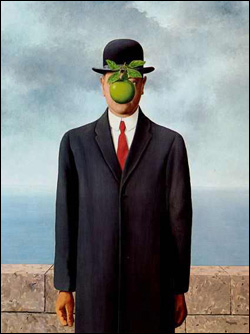

To begin with, great characters must seem real: not superheroes, not perfect, not omnipotent and certainly not omniscient. Sometimes they make a wrong decision. Sometimes they’re afraid or even petty. Sometimes they do stupid things. My own favorite character has a very serious problem with authority. Good characters, like real people, have flaws, and may even have serious or crippling ones. If your characters do have such flaws they will have an appeal to your reader that no heroic cardboard paladin could ever match. Readers have even been known to fall in love with tragically flawed characters.
Great characters have their own complex motivations. Even in fantasy tales of good versus evil, every significant character needs to have their own motivation for what they are doing. Whether it is love, duty, hate, revenge, lust, greed or atonement, the reader needs to know just what it is that motivates the character to do what they are doing. Whether told by backstory or brought out via conversation, each significant character’s motivation should be exposed in order to make them more interesting to the reader, and to get the reader more involved in the plot through the characters. Along with having their own motivation, every significant character should be in pursuit of something – victory, success, escape, money, fame, freedom or even just their next meal – and the reader should know what it is.
Great characters are not described in detail. Certainly the character’s general appearance and nature should be presented; but the details of the character should be spelled out by the character itself in the character’s motivations, actions and dialogue. Leaving the character as an essentially blank canvas to be filled in later by what the character does is far more effective than actually going into detail about them. Additionally, any details deliberately left out by the writer will be automatically filled in by the imagination of the reader, thus making for a more personal and more enjoyable reading experience. A writer can even use the sudden exposure of a previously-undisclosed facet of a character as an effective plot device.
Now that as an author you have created some great, human, flawed, motivated characters, what do you do with them? You ruin their lives. You do that by menacing or hurting them or someone (or something) they love, by putting them in harm’s way, by tormenting them, by making them suffer. Why? So the reader can see who they really are. As Dwight Moody famously said, “Character is what you are in the dark,” and when things are darkest for your characters is when the reader learns the most about them. Failure also helps with character development: how someone deals with failure is far more telling about them than how they deal with success ever is, both in fiction and in real life.
And, last but not least, have at least one character for everyone to sympathize with. By this I don’t necessarily mean to try to present one character in a way that is sympathetic to everyone; what I mean here is that given the totality of human nature, try to have enough variation in the characters that at least one of will be able to appeal to a reader no matter what the reader’s nature, worldview, philosophy, politics, or sexuality are. Yes, this is an argument for diversity in characters, but it’s not a political argument: there are readers out there of all types, and as a writer who wants to succeed you want your fiction to appeal to all of them, or as least as many as you possibly can.
Great characters make great fiction, so be sure to make great characters.
Bio: John Johnston III is a scientist, a fiction and non-fiction writer, a board vice chairman, a university faculty member, a member of Science Fiction and Fantasy Writers of America (as well as the chair of its Grievance Committee and a recipient of its highest honor), a lifelong baseball fan, a patriot, and a political independent. He thinks that personal websites are even more vain than requested bios and refuses to have one.
Want to write your own guest post? Here’s the guidelines.
#sfwapro
Enjoy this writing advice and want more content like it? Check out the classes Cat gives via the Rambo Academy for Wayward Writers, which offers both on-demand and live online writing classes for fantasy and science fiction writers from Cat and other authors, including Ann Leckie, Seanan McGuire, Fran Wilde and other talents! All classes include three free slots.
...
Want access to a lively community of writers and readers, free writing classes, co-working sessions, special speakers, weekly writing games, random pictures and MORE for as little as $2? Check out Cat’s Patreon campaign.

"(On the writing F&SF workshop) Wanted to crow and say thanks: the first story I wrote after taking your class was my very first sale. Coincidence? nah….thanks so much."

(fantasy, short story) A few weeks after my grandmother’s death, her quilt began crawling from her bed in the early hours and roaming downstairs. You’d hear the rustle as it went past the door, and in the morning find it curled somewhere, like a dog that had died of a broken heart in the night.


This site is protected by reCAPTCHA and the Google Privacy Policy and Terms of Service apply. This site is a participant in the Amazon Services LLC Associates Program, an affiliate advertising program designed to provide a means for sites to earn advertising fees by advertising and linking to Amazon.com.